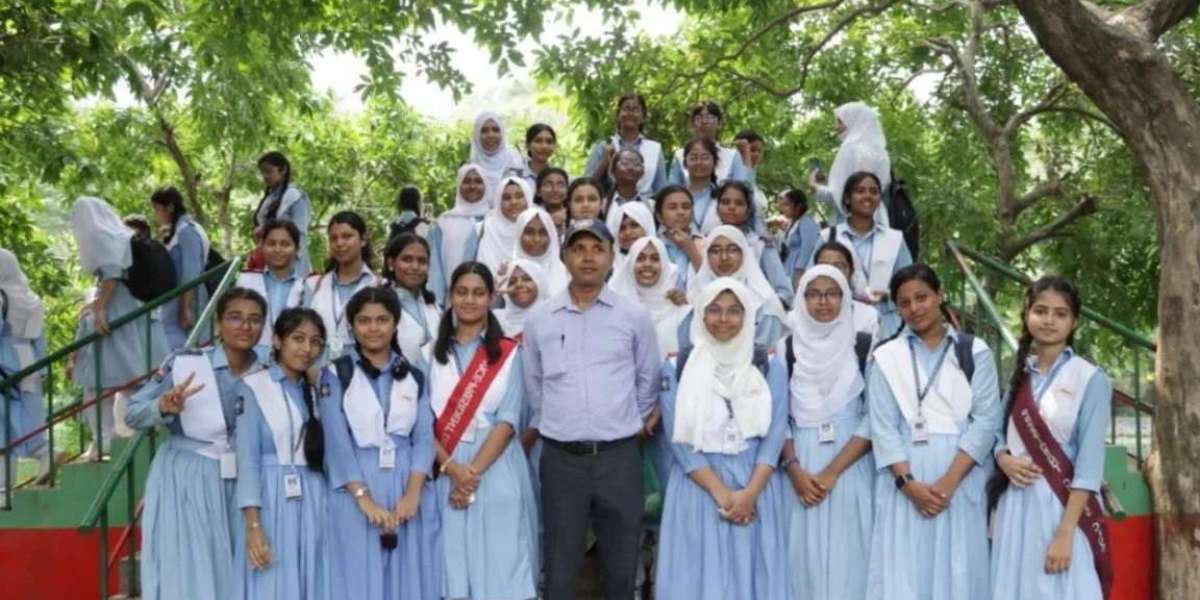Zoom-Bangla Desk: Admission fees, salaries and additional fees are being collected from students in private educational institutions across the country including the capital. The complaint of charging different tuition fees in different institutions is a long-standing one. This fee is forced on the students. There is no adjustment for other fees either. The organization is collecting fees as best it can. It puts pressure on the parents.
besorkary school
Although the Directorate of Secondary and Higher Education (MAUSI) has issued instructions or warning notices to educational institutions across the country to stop charging extra fees, none of the institutions are heeding it. Therefore, the Ministry of Education has finalized the draft policy to rein in the tuition fees. It is known that admission and tuition fees in city corporation, metropolis, district and upazila secondary schools will be determined according to the region. As many as 28 common fees including monthly salary, admission, session, board exam form filling, scout, milad will be fixed. The policy may be announced next week. Meanwhile, the parents have demanded to stop collection of re-admission fees in advanced classes in private schools.
It is known that according to the draft new policy, the tuition fees of the schools in the districts where the location is good and the people are high class are comparatively higher. That is, the monthly salary of schools in Dhaka, Sylhet, Moulvibazar, Chittagong, Rajshahi, Bogra regions has been kept relatively high. On the other hand, school fees are set lower in areas that are relatively undeveloped and are lagging behind. According to the draft policy, the tuition fee or monthly salary including tiffin has been set at 100 taka per student of 6th to 10th class of MP and non-MPO affiliated educational institutions in the upazilas outside the municipal area or municipal upazila. This fee is 1 thousand 200 taka per year.
Apart from salary, the total annual fee for MP organizations is 1 thousand 360 taka, but for non-MPO institutions, this fee is 1 thousand 815 taka. And in class 6th to 10th for both MPO and non-MPO institutes, an internal examination of three hours per subject is fixed at Tk 40 and for less than three hours at Tk 30. The annual fee for college level (11th, 12th and graduation) MPO-affiliated educational institutions will be Tk 1,645 in Mofsal area, and Tk 1,990 per student in non-MPO educational institutions. Both MPO and non-MPO level colleges have fixed Rs.50 for internal three-hour subject test and Rs.60 for four-hour test.
The monthly salary-tuition fee summary report determined by the metropolitan and district committee should be sent to the ministry by December 31 under the signature of the committee president. There will be an area wise committee to determine the tuition fees. The district level committee will be chaired by the district commissioner. Besides, there will be five more nominated members of the respective education board. These include - one principal of MPO-affiliated colleges at municipal level, one principal of non-MPO colleges at municipal level, one headmaster of MPO-affiliated schools at municipal level, one headmaster of non-MPO-affiliated schools at municipal level and district education officer. The committee will look into the issue of full free or half free for poor and destitute students if applicable.
Greece's memorable win over England
Monthly salary-tuition fee account should be opened in the bank of the prescribed sector. If the annual collection in a single sector is more than 10 lakh rupees, a separate bank account should be opened for this sector. The money collected should be spent sector wise. Money from one sector cannot be spent on another sector. All payments must be made through the bank. Collection and expenditure of money will be auditable. The registrar should maintain separate sector-wise accounts following the general principles and procedures for maintaining accounts. Reconciliation of cash book and bank statement should be done twice in every calendar year (June and December). Soft copies and hard copies of all accounts must be preserved for a minimum of 20 years. At the time of transfer of responsibility, the head of the institution will be obliged to explain in writing to the teacher taking charge. Apart from this, the policy also specifies how much money educational institutions can collect for internal examinations, tiffins, magazines, sports, cultural festivals, religious events, libraries, identity cards, freshers, educational tours, development fees, etc.





































![একজন মহিলার ক্রোধ: 'স্ট্রেঞ্জ ডার্লিং' এবং 'লাস্ট নাইট ইন সোহো' [ডাবল ঝামেলা]](https://www.aface1.com/upload/photos/2024/12/opo2DHy8vCxTTUOSegCY_20_186063bdd176ac83bb83153bd3578dcb_image.jpg)













